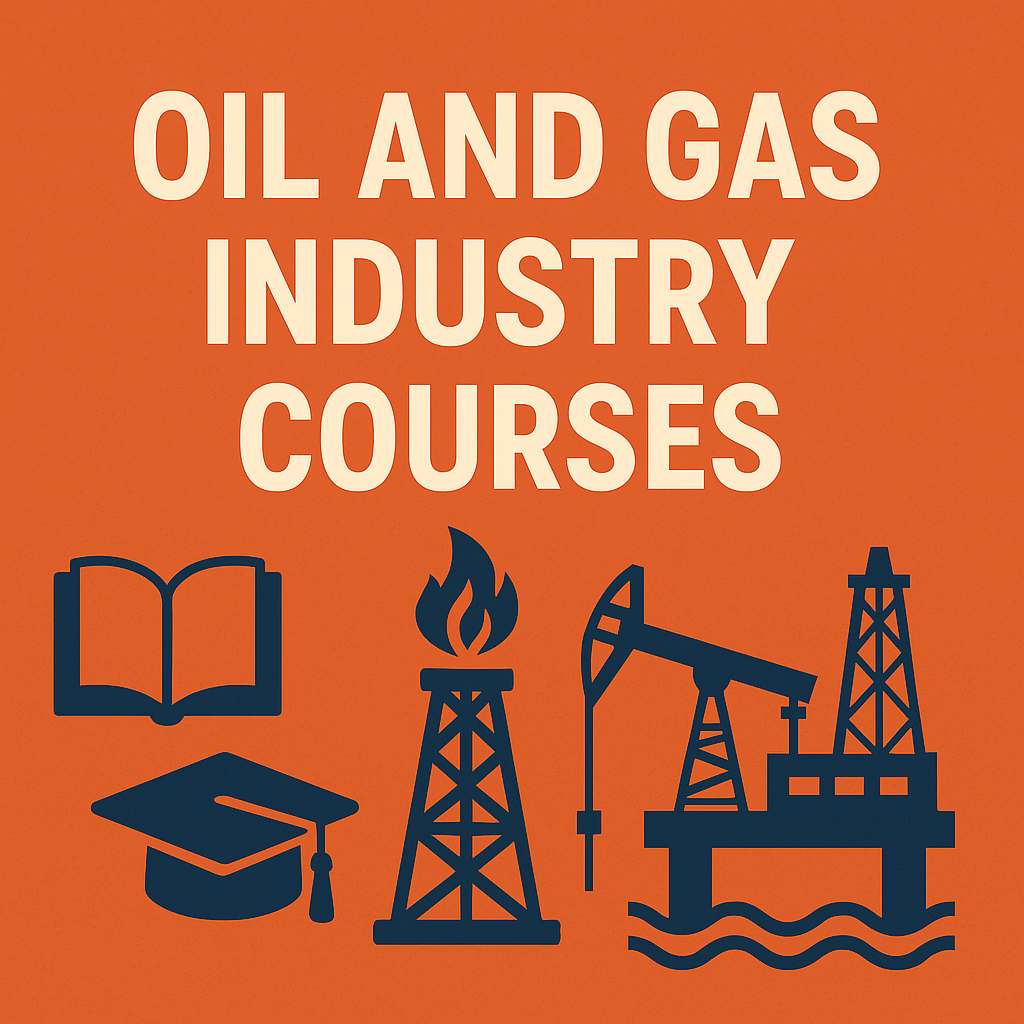The oil and gas industry is a cornerstone of the global economy, offering a vast range of career opportunities across engineering, science, business, and safety disciplines. As the sector evolves with technological innovations and increasing environmental regulations, the demand for skilled professionals with specialized education and certifications continues to grow. Whether you’re an aspiring petroleum engineer, a safety officer, or a data analyst, acquiring relevant qualifications is crucial to entering and succeeding in this dynamic industry. This article explores the most relevant oil and gas-related courses, certifications, and training paths to help you launch or advance your career.
1. Petroleum Engineering
Degree Level: B.Tech / M.Tech / MSc / PhD
Core Subjects:
Reservoir engineering
Drilling engineering
Production technology
Enhanced oil recovery
Top Institutions Offering Petroleum Engineering:
Indian Institutes of Technology (IITs)
University of Petroleum and Energy Studies (UPES), Dehradun
Texas A&M University, USA
Stanford University, USA
Career Paths: Exploration and Production (E&P) roles, drilling operations, reservoir management, and oilfield services.
2. Oil and Gas Management
Degree Level: MBA / PG Diploma
Key Subjects:
Supply chain management
Project management
Energy finance and policy
Leading Institutions:
UPES, Dehradun
University of Aberdeen, UK
Robert Gordon University, UK
Ideal For: Business, commerce, or economics graduates targeting managerial, strategic planning, and consultancy roles in oil and gas firms.
3. Geology and Geophysics
Degree Level: B.Sc / M.Sc / PhD
Major Topics:
Seismic interpretation
Basin modeling
Stratigraphy
Petrophysics
Top Institutions:
IIT Bombay
Indian Institute of Science (IISc)
Stanford University
Colorado School of Mines, USA
Career Options: Subsurface analysts, seismic interpreters, exploration geologists, and geophysical data scientists.
4. Core Engineering Disciplines
Many roles in oil and gas require foundational knowledge in traditional engineering streams:
Disciplines:
Mechanical Engineering
Chemical Engineering
Electrical Engineering
Relevant Topics:
Process engineering
Piping and instrumentation
Rotating and static equipment
Applications: Refinery operations, design and commissioning, offshore platform maintenance, and process optimization.
5. Short-Term Certifications and Job-Oriented Courses
In addition to formal degrees, industry-recognized certifications significantly improve employability. Here are some of the most valuable short-term training options:
IWCF / IADC Well Control Certification
Target Audience: Drilling supervisors, engineers, rig personnel
Objective: Ensure competence in well control procedures
Duration: 3 to 5 days
NEBOSH / IOSH (HSE Courses)
Target Audience: Health, Safety & Environment (HSE) professionals
Focus: Risk assessment, safety auditing, emergency planning
Recognition: Highly valued for offshore and onshore assignments
NDT (Non-Destructive Testing) Certifications
Levels: I, II, III
Techniques: Ultrasonic testing, radiography, magnetic particle testing
Purpose: Inspect pipelines, welds, and structural components without damage
Suitable For: QA/QC engineers, inspection professionals
Process Design and Simulation Tools
Software: Aspen HYSYS, Aspen Plus, ChemCAD
Ideal For: Chemical/process engineers in refinery and petrochemical sectors
Available On: Udemy, Coursera, PetroSkills, industry training institutes
Piping Design and Engineering
Topics: Isometric drawings, stress analysis, 3D modeling
Software: AutoCAD Plant 3D, CAESAR II
Suitable For: Mechanical engineers in design and project execution roles
Offshore and Subsea Engineering
Subjects: Floating Production Storage and Offloading (FPSO) systems, pipeline design, offshore structures
Popular Locations: UK, Norway, Malaysia
Career Tracks: Offshore construction, marine engineering, subsea technology
Oil and Gas Data Analytics
Skills Covered: Python, Excel, Power BI, SQL, machine learning
Use Cases: Production optimization, predictive maintenance, real-time monitoring
Relevance: Growing demand in digital transformation roles
6. Online Platforms Offering Oil & Gas Courses
The digital era has made quality education more accessible. The following platforms offer flexible learning options:
PetroSkills: Known for high-quality technical training tailored for industry professionals
Coursera: Offers university-backed programs (e.g., Duke University, University of Alberta)
Udemy: Focuses on practical, hands-on training modules at affordable rates
edX: Partners with institutions like MIT and Delft University for advanced energy programs
FutureLearn: Offers courses on offshore safety, energy transition, and sustainability
7. Tips for Choosing the Right Course
Align with Career Goals: Choose a course based on whether you’re targeting field operations, engineering design, safety, or management.
Industry Recognition: Opt for certifications and institutions that are globally or regionally recognized.
Internship and Placement Support: Practical exposure and job assistance are crucial for fresh graduates.
Hands-On Training: Select programs that offer simulation labs, field visits, or project-based learning.
Stay Updated: The energy industry is changing rapidly. Choose courses that cover current and emerging trends like renewable integration and carbon capture.
8. Career Opportunities After Certification
Upon completing relevant courses and certifications, professionals can explore diverse roles across the oil and gas value chain:
Upstream Roles:
Drilling Engineer
Reservoir Engineer
Geoscientist
Midstream Roles:
Pipeline Engineer
Logistics Coordinator
Storage Facilities Manager
Downstream Roles:
Refinery Operator
Process Engineer
Quality Control Analyst
Support Functions:
HSE Officer
Project Manager
Business Analyst
Emerging Roles:
Energy Transition Consultant
Carbon Analyst
Digital Oilfield Specialist
Conclusion
The oil and gas industry offers rewarding career opportunities, but success in this sector increasingly demands a blend of traditional knowledge and modern skills. Whether you aim to work on offshore rigs, in refineries, or as a data analyst in digital oilfields, the right educational background and certifications can set you apart. From petroleum engineering degrees to short-term courses in safety or data analytics, there are tailored options for every career path.
With the industry moving toward cleaner, smarter, and more efficient operations, professionals equipped with both technical expertise and sustainability awareness will be in high demand. By investing in the right courses today, you can secure a strong position in the evolving energy landscape of tomorrow.





